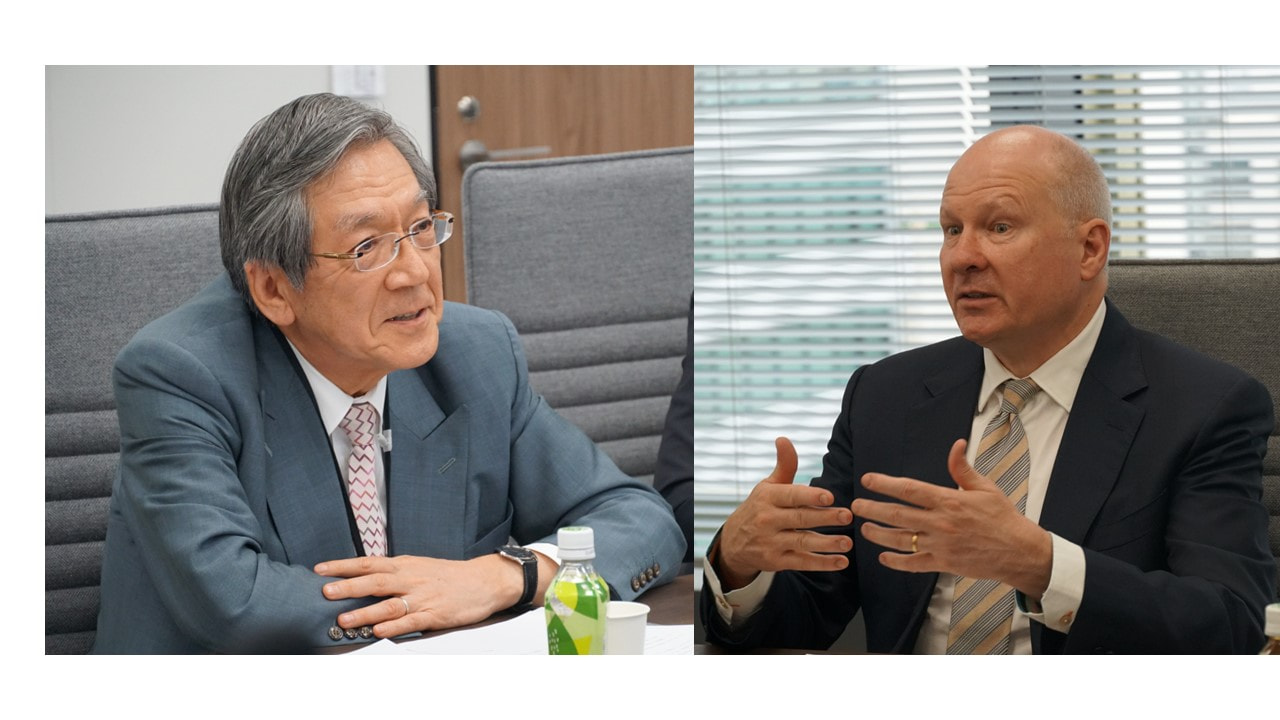TOPICS

DE&I
ESG
Towards sustainably increasing value
in our investment portfolio
and the economy as a whole
Interview with Yoshie Suzuki, Managing Director, Head of Fund Management (and ESG Promotion Officer) JIC
- What led JIC to sign the PRI?
JIC aims to contribute to the growth and development of Japan's industrial competitiveness and risk money ecosystem by engaging in investment activities to sustainably enhance the value of its portfolio companies and the economy as a whole, and by serving as a platform for investment knowledge. By signing on to the PRI, we hope to contribute to the promotion of ESG investment in the private equity industry in Japan, including our investee funds and potential investee funds.
- What initiatives is JIC considering through signing the PRI?
In line with signing the PRI, we have formulated a “Policy on Environmental, Social and Governance (ESG) Initiatives (Japanese only)” and will continue to incorporate ESG perspectives into our investment process in accordance with this policy. In addition, we will actively participate in various meetings of the PRI signatories and network with other signatories to deepen our understanding of ESG investments and global best practices for responsible investment. In addition, JIC intends to strengthen its internal structure by regularly evaluating JIC’s ESG-related efforts through annual reports to PRI, and to further incorporate ESG perspectives into our activities through internal exchanges of opinions and similar measures. Furthermore, we hope that JIC can play a role as a platform by engaging in dialogue with portfolio fund managers and communicating ideas actively on the importance of incorporating ESG factors into investment decision-making, post-investment monitoring, and other activities.
- What is your sense of the challenges regarding the status of ESG investment and PRI signatories in Japan?

With respect to ESG investment and PRI signatories, JIC, as a policy investment institution, is committed to taking the lead in keeping up with international trends. Although some of JIC's investments are in funds that have not taken a long time since it was established, many of the investees in these funds are startups with a strong commitment to solving social issues, so I think the ESG concept should align well and may be easy to promote. ESG themes cover a wide range of topics, and the pros and cons are not easy to judge, so there may be various concerns as our investees incorporate ESG factors, but I think we all understand the importance of environmental issues, and human capital, one of the elements of “Social” is the most important factor in investment. In terms of governance, investee companies must thoroughly address potential conflict of interest and other such matters, and JIC will continue to encourage its portfolio companies to steadily address each of these issues. In the future, I believe that ESG initiatives and PRI signatories will have a positive impact on the acceptance of foreign funds, and JIC will continue to provide support to investees and other investors from a long-term perspective.
Interview with Tatsuro Yuzawa, Head of PRI, Japan
- What is the status of responsible investment initiatives?
In recent years, ESG and responsible investment initiatives have become increasingly popular worldwide. This is due to the fact that it has become clear that ESG factors affect stock prices and corporate valuations, that the younger generation in the U.S. and elsewhere is becoming increasingly aware of ESG investments with beneficiaries making more demands, and that regulatory developments such as information disclosure concerning sustainable finance (finance that encourages a shift to a new industrial and social structure and helps realize a sustainable society) are spreading globally. With the growing awareness of asset owners such as pension funds and insurance companies, as well as end beneficiaries, investments to solve social issues are spreading not only among listed companies but also among non-listed companies.
- Do you observe a similar trend in Japan?
Institutional investors have increasingly announced their acceptance of the Japanese version of the Stewardship Code (Principles for Responsible Institutional Investors), and we feel that responsible investment is also expanding in Japan. In addition, the concept of responsible investment has deepened, and there is a movement toward making investment decisions not only by considering ESG factors at the time of investment, but also by taking into account how the investment will impact ESG factors in the future. However, since it is an investment, we focus on having an impact on the real world while securing a financial return, rather than sacrificing financial return in favor of impact.
- What progress are you seeing in Japan with gaining PRI signatories?
As of the end of September, the number of signatory institutions in Japan was 125, and many of the institutions accepting the Stewardship Code have signed. With Prime Minister Kishida's announcement of endorsing a policy to have seven public pension institutions sign the PRI, we expect further progress in the signing of pension funds. In addition, private equity (PE) and venture capital (VC) firms are also signing the code, as the purpose of their establishment is directly related to social issues in the first place.
- What was discussed at the first PRI in Person event held in Japan?

Under the theme of “Moving from Commitments to Action,” this year’s event featured speakers from domestic and foreign companies, policymakers, NPOs, and other stakeholders, with the aim of promoting action through practical discussions. Prime Minister Kishida mentioned the relationship between sustainable finance and responsible investment, as well as sustainable outcomes (the impact of investment on the real world) and gave strong support for the promotion of responsible investment. In the area of collaborative engagement, the speakers introduced examples of how best practices of signatory institutions have been adapted to investees, and I gained the impression that collaborative engagement is advancing effectively and becoming more accessible. One of the speakers raised the interesting question of what the ideal responsible investment should be, and I was struck by his comment that we are now in an environment where each of us must seriously consider what we should be responsible for and how to address emerging cases that can’t be found in standard textbooks.
- What do you expect from JIC in having signed PRI?
Since the environment and investment restrictions of each of the signatory institutions vary, we hope that they will promote responsible investment in line with their respective investment policies. In addition, I believe that JIC’s philosophy of “fostering the development of investment professionals” and “establishing a virtuous cycle of risk capital supporting next-generation industries” will lead to the promotion of responsible investment. For example, I think it is important to share with future investment personnel the ideas of responsible investment overseas that we have gained through the PRI network and the dilemmas we face in promoting responsible investment. I believe that the creation of next-generation industries is linked to the resolution of social issues; as such, the promotion of JIC’s philosophy is consistent with PRI’s objectives. I look forward to JIC’s future efforts in responsible investment.


